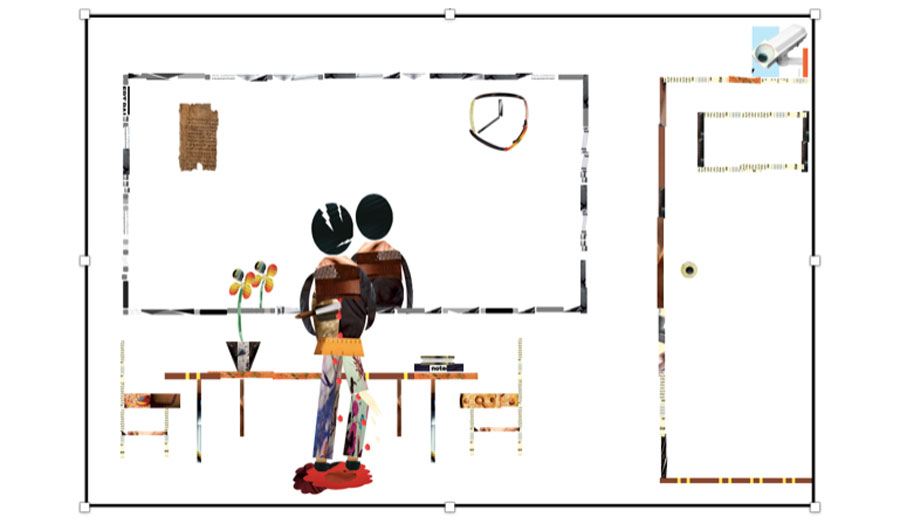The exhibition brings together more than 60 pieces of work from around 175 artists and writers, and invites the audience to question what counter-progressive stories may sound like.
Date: 29 March 2022
A new digital exhibition explores the theme of 'after progress,' asking how we can reimagine ways of living and dying outside of the modern coordinates of 'progress'.
The exhibition was borne from a research project led by London Met's Dr Craig Lundy and Dr Martin Savransky of Goldsmiths, University of London. It brings together more than 60 pieces of work from around 175 artists and writers, comprising of nature writing, poetry, aphorisms, brief dramas, short films, interactive webpages, letters and epistolary forms, fictional encyclopedia entries, instructions, auditory compositions, and many more.
It invites the audience to question what counter-progressive stories may sound like, and what possibilities and potentialities could be made perceptible if we were to understand ways of flourishing outside of the idea of progress.
The project leads explain, "the notion of "progress" is arguably the defining idea of modernity: a civilisational imagery of a boundless, linear, and upwards trajectory towards a future that, guided by reason and technology, will be "better" than the present. It was this notion that placed techno-science at the heart of modern political culture, and it was the global unevenness of "progress" that imagined European imperialism as a civilising mission inflicted upon "backward" others for their own sake.
"The colonial, rationalistic, and ecocidal consequences of the story of "progress" have been laid bare, yet progress remains a ruling idea capable of governing our imaginations today. At the same time, the ruins of progress are teeming with divergent worlds and collective experiments whose stories upend modern dreams, cultivating plural value-ecologies of living and dying with others on Earth. How to intensify them? How to make them felt?
"Composed collectively by contributors, curators, designers, and collaborators alike, all navigating and negotiating lockdowns and social distancing measures and a plethora of other restrictions on our modes of sociality, this exhibition is also a living archive, a testimony of what happened and what can still happen in the interstices of such distances, when we insist in spite of all on thinking and being together (apart).”
Dr Lundy is a Reader in Social and Political Thought at the University. His research focuses on the nature of transformational processes, and in particular the role that history plays in shaping socio-political formations.

Image: Futuring Mental Health by Maria Grazia Turri, Lydia Hallam, Nick Howden-Steenstra, Ana Claudia de Castro Lima, Cynthia Osuchukwu, Sumita Majumdar and Muhammed Umer
